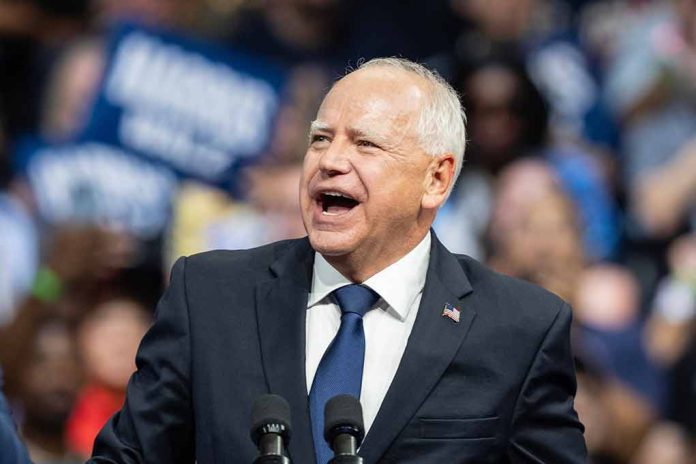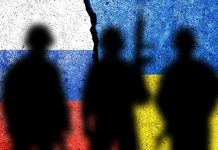
Minnesota Governor Tim Walz faces backlash after comparing a Trump rally to a 1939 Nazi event, sparking demands for a public apology.
At a Glance
- Gov. Tim Walz compared Trump’s rally to a 1939 Nazi rally at Madison Square Garden.
- The Trump campaign has demanded an apology, citing potential incitement of violence.
- Some Democrats doubt the effectiveness of using “Nazi” and “fascist” labels.
- Concerns rise over potential unrest if Trump wins the upcoming election.
Walz’s Controversial Comments
Minnesota Governor Tim Walz has sparked controversy by drawing parallels between former President Donald Trump’s recent rally at Madison Square Garden and a Nazi rally held at the same venue in 1939. His comments were made during a campaign rally, emphasizing a perceived similarity between the two events. Walz’s statement has reignited the polarizing rhetoric often employed by both parties, which some within his own party believe could alienate swing voters and exacerbate political tensions across the nation.
The comparison has received strong condemnation from various quarters, particularly from the Trump campaign. The campaign has demanded an apology, calling the remarks inflammatory and potentially inciteful. Trump campaign national press secretary Karoline Leavitt stressed that such rhetoric could provoke violence, and highlighted the diverse group of attendees, including a Holocaust survivor, present at Trump’s rally.
I was there last night & saw thousands of patriotic Americans of all races, religions, and creeds.
Tim Walz should apologize to them. https://t.co/5xmoj8THaC
— Rep. Mike Waltz (@michaelgwaltz) October 28, 2024
A Divided Democratic Response
Within the Democratic Party, opinions are split regarding the use of Nazi comparisons in political discourse. Some Democrats, like the pro-Harris super PAC Future Forward, suggest such rhetoric is ineffective and may not resonate well with the broader electorate. Concerns also persist regarding potential unrest should Trump secure the presidency once more. Reports indicate that some progressives are bracing for possible violence and civil disruptions following a Trump victory, underscoring the deep-seated political divides in the country.
“Tim Walz repeats the disgusting smear that President Trump’s ‘big rally’ at Madison Square Garden today is somehow akin to a 1939 Nazi rally,” posted Rep. Mike Waltz (R-Fla.) on X. “I was there last night & saw thousands of patriotic Americans of all races, religions, and creeds. Tim Walz should apologize to them.”
This controversy follows similar sentiments echoed by others in the political realm. Hillary Clinton previously voiced a comparison between Trump events and Nazi gatherings, while the Harris campaign has criticized Trump’s perceived admiration for authoritarian figures. Meanwhile, the Harris-Walz campaign has refrained from making additional comments, leaving their initial statements to stand without further explanation.
Implications for Political Discourse
Rep. Mike Waltz and Rep. Jim Banks vehemently criticized Governor Walz’s comments, pointing to the presence of diverse attendees and the significance of including a Holocaust survivor at the rally. The Republican Jewish Coalition also condemned the comparison, arguing that it trivializes the severity of the Holocaust. Such reactions highlight the sensitivity and impact of utilizing historical atrocities within contemporary political debates.
“Tim Walz needs to apologize for his disgraceful comments smearing Trump supporters. This kind of rhetoric has already inspired assassination attempts.” – Karoline Leavitt
The current political climate reflects growing adversities between parties, as accusations and heated exchanges over “fascist” behaviors threaten to escalate tensions further. The rhetoric employed in instances like this poses questions about its potential repercussions on national unity and the efforts toward fostering civil discourse in today’s deeply divided political landscape.
Sources:
- Trump Campaign Demands Tim Walz Apologize for Equating MSG Rally to Nazi 1939 Rally
- Republicans tear into Tim Walz for comparing Trump’s MSG rally to Nazi event: ‘More offensive than any joke’







